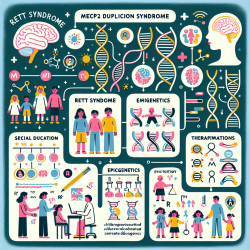Empowering Change: Harnessing Research to Enhance Youth Outcomes
In the realm of speech-language pathology and online therapy, data-driven decisions are crucial for fostering positive outcomes in children. The research article titled "Relations among Externalizing Behaviors, Alcohol Expectancies and Alcohol Use Problems in a Multi-Ethnic Sample of Middle and High School Students" provides valuable insights that practitioners can leverage to improve their skills and interventions.
Understanding the Research
The study explores the interplay between externalizing behaviors, alcohol expectancies, and alcohol use problems among adolescents. It highlights how these factors interact and influence binge drinking and alcohol-related negative consequences, particularly among minority youth. The findings suggest that adolescents with externalizing behaviors and positive alcohol expectancies are at higher risk for alcohol-related problems.
Key Findings and Implications
The research identifies several critical points:
- Older adolescents are more likely to report binge drinking and alcohol-related negative consequences.
- Externalizing behaviors significantly impact binge drinking and negative consequences.
- The interaction between positive alcohol expectancies and externalizing behaviors increases the likelihood of alcohol-related problems.
These findings underscore the importance of addressing both externalizing behaviors and alcohol expectancies in interventions aimed at reducing alcohol use problems among adolescents. Practitioners can utilize this knowledge to tailor their approaches and create more effective prevention and intervention strategies.
Implementing the Research in Practice
Practitioners can take several steps to incorporate these findings into their practice:
- Screening and Assessment: Implement comprehensive screening tools to identify adolescents at risk for alcohol use problems, focusing on externalizing behaviors and alcohol expectancies.
- Targeted Interventions: Develop interventions that specifically address the interaction between externalizing behaviors and alcohol expectancies. This may include cognitive-behavioral strategies to modify expectancies and behavioral interventions to manage externalizing behaviors.
- Collaboration with Schools: Work closely with schools to implement school-based programs that address these risk factors. School settings provide an ideal environment for early identification and intervention.
Encouraging Further Research
While this study provides valuable insights, further research is needed to explore the nuances of these interactions and their implications for different populations. Practitioners are encouraged to engage in ongoing research and collaboration to deepen their understanding and refine their approaches.
By staying informed and integrating research findings into practice, practitioners can make a significant impact on the lives of adolescents, helping them navigate challenges and achieve positive outcomes.
To read the original research paper, please follow this link: Relations among Externalizing Behaviors, Alcohol Expectancies and Alcohol Use Problems in a Multi-Ethnic Sample of Middle and High School Students.










